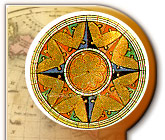
|
|
The
Lost Golden City of Manos (cont.)
|
|||||||||||||||||||||||||||||||||||||
 Fawcett,
by examining records and sifting through old stories, had
become convinced that there was a large, ancient city concealed
in the wilds of Brazil. Fawcett called this city "Z" and launched
an expedition that disappeared into the jungle never to be
seen again.
Fawcett,
by examining records and sifting through old stories, had
become convinced that there was a large, ancient city concealed
in the wilds of Brazil. Fawcett called this city "Z" and launched
an expedition that disappeared into the jungle never to be
seen again. |
Since then many have tried and failed. Krupp, the German munitions manufacturer, sent one hundred men, heavily armed, into the jungle. Not a man returned. They were swallowed by the jungle, and that was all. One of the best known attempts was made by Colonel Fawcett, a former British colonial officer who had been stationed in India. Colonel Fawcett was a well known archeologist, and from one source or another seemed to have heard the legend of the Golden City. It has even been said that he deciphered inscriptions telling of the City from the walls of a sacred cavern in India! Anyway, he spent sixteen years in the jungles of South America, learning the people, the country and the language. He claimed to have secured evidence of the existence of the city from friendly natives. He went into the jungle, and never returned.
Commander Dyott, of the British Royal Air Force, made several futile attempts to find Fawcett. He flew a plane over much of the jungle in that section, but a plane with a cruising speed of 130 miles per hour, which necessarily prevented any thorough survey of the jungle. In even a short time, the creepers and vines will completely blanket such a ruined city, until an explorer can be right in the midst of the fallen stones before he is aware of it. Like others before him. Dyott failed to find Fawcett, but he did contact natives of the region, which was a great accomplishment. These natives are pygmies, very shy, and naturally very fierce when an outsider enters their country. Dyott claimed to have been satisfied from what he discovered that Fawcett was dead, but the most striking result of his expedition was a stone tablet purported to have been given him by the pygmies and containing inscriptions in ancient Hebraie!
There have long been stories of wanderers who penetrated these jungles, even prior to the time of Columbus. The late Arthur Brisbane, wrote several years ago of the discovery of a Phoenician galley imbedded in the mud of the Amazon. There is the story of a man who came to Carthage in the day when that city was still the great maritime rival of Rome. This man reported that he came from "the lands of the west" and that he was seeking the home of his ancestors. Carthage had been founded by the Phoenicians, the greatest maritime race of the ancient world. That the City of Gold may have been founded by them is not impossible. They were great wanderers and seamen. Hanno, the Phoenician, sailed a galley completely around Africa almost a thousand years before the same feat was accomplished by Vasco da Gama. The Phoenicians had been many times to the Canary and Azores groups, to England and Ireland.
But there were other theories. It may have been the capital of another people similar to the Incas or Aztecs, a people like the Mayans of Central America and Yucatan, whose cities were covered by jungle. Frank Churchward, the man responsible for the many books on the lost continent of Mu, believes the city to have been the religious capital of that fabled people who lived on a continent in mid-Pacific. Ruins of temples, remarkably similar in architecture, are found upon many of the islands of the Pacific, such as Tahiti, and Raratonga. The huge stone images on Easter Island have also been offered as remains of this vanished continent that disappeared beneath the sea so long ago. The people inhabiting many of these islands are a very high type of native, and seem to have the remnants of a once great culture. Legend has it that when the continent of Mu sank beneath the sea, part of South America was lifted above the water in one of those movements of the earth's crust that have taken place so often in times past. The island that was the site of the Golden City was raised, and now situated in the remains of a crumbling mountain range in Brazil. Fable or truth, it has become one of the unsolved mysteries of the world. To imagine those vast, steaming jungles without having seen them is impossible. Tropical heat, swamps tangled with underbrush, creepers and vines; it is an unbelievable chaos. Insects as large as birds, jungles where the jaguar reigns supreme; where the great anaconda, largest of reptiles, lives along the streams. The tiny pygmies who inhabit the region of the Matto Grosso slip through the jungle so silently as to be all around before one is aware of it, and they are remarkably expert with their long blow-guns which shoot poisoned darts and whose slightest scratch causes almost instant death.
It is no wonder that expedition after expedition has failed. But when one remembers the great city of Angkhor in French Indo-China, a city once populated by three million people, and how it was discovered and uncovered but a few years ago, one does not wonder that there still are people anxious to attempt the search, so often fruitless.
Many stories are told by men who go down to the sea in ships, and more often than not even the most fantastic are true. It was in Java that the writer first stumbled across rumors of the Golden City. That was in a time when it had not yet begun to figure in the news of the day, and when it was known to only a few. Going ashore in Soerbaia, I stopped in a bar room with another drifting seaman and ordered lunch and a couple of glasses of beer. An old beachcomber, on the shady side of seventy, came in asked us to buy him a drink. In the few days around port we bought him a number of drinks, and one afternoon, slightly touched with good Dutch lager, he interrupted our talk of Brazil and Peru to tell us his own story of the Golden City.

Some thirty years before he had been living in the jungles of Brazil, living precariously on whatever he could find in the jungle worth selling. He had been there fifteen years at the time of the adventure, and hearing some stories of gold somewhere at the headwaters of the Tapajos, he ventured up that stream. As always, he went alone. Near the headwaters he concealed his boat under the roots of a great tree, and started off inland. For eleven days he made his way through the thick of the Matto Grosso, following game trails or cutting his way. On the eleventh day he was suddenly set upon by natives and taken prisoner so suddenly as to leave him no opportunity for defense.
For several hours they led him through the jungle, and then suddenly they began to climb. In a short time, instead of a native village of grass or palm-leaf huts, he found himself in a narrow canyon containing the ruins of a great city. The air was very hot and very damp. Low clouds hung over the jungle, and he began to realize why he had failed to see these low peaks before, as they were probably concealed in clouds much of the time. Vast broken walls stretched before him, there were heaps of debris, fallen columns, and great, roofless corridors.
During the following two months while he was held a prisoner in the city, he had an opportunity to see inside many of the great buildings, and the caverns behind them. He saw rooms filled with ingots of gold, gold and silver vessels of marvelous workmanship set with gems of great value. Diamonds were plentiful, and the natives said there were large deposits in the neighborhood. Some time later, he managed to escape, but in returning to civilization, nearly died of blackwater fever and in his weakened condition, feared to return to the jungle. He hoped to obtain financial backing and return, but feared to trust anyone with his secret, and finally, drinking, it began to be no more than a dream.
At the time, it seemed merely another seaman's story, but one with perhaps a keen imagination behind it. The man possessed little education, and at the time the story was not widely publicized. Fawcett was not to come into the news for a few months, and the story was new to me. However, there was one part of the story that rang true. He was not vague. Every detail was clearly in his mind, and best of all, being a seaman, he had retained his sextant, and while in the city had one clear morning scaled a pinnacle of rock nearby and taken a shot at the sun. In other words, he had the exact latitude and longitude of the Golden City of Manos! The position he gave me, in return for more drinks, places the city in the district where it is supposed to be, between the Tapajos and Xingu Rivers!
Strange stories come out of the abysmal depths of those Amazonian jungles, stories that add to the legends told by the conquistadors. They found gold in Peru, and they found it in Mexico. Why not in Brazil? Was Fawcett's theory correct? Was the old beachcomber's story true? Under the leaves of the jungle giants the silent rivers sweep onward to the sea, the great Amazon, dark, mysterious, stealing along its muddy trail, carrying the soil of Brazil into the Atlantic. The leaves of the jungle whisper to the rivers, and the rivers murmur reply. Were the stories true? Only the jungle knows, and the jungle does not answer.
************* THE END *************
LOUIS L'AMOUR'S LOST TREASURES
Member Login
| SUBSCRIBE NOW! |
What's in the Next Issue!
Preview Table of Contents | Forget Your Password?
About Lost Treasures | Frequently
Asked Questions | Contact Us
Copyright Notice | Terms
of Use Agreement
The
Official Louis L'Amour Web Site
Home | The
Louis L'Amour Trading Post | About
Louis | Louis
L'Amour Community
The Official
Louis L'Amour Discussion Forum









